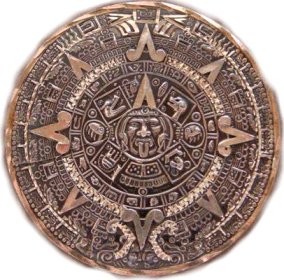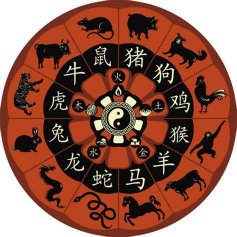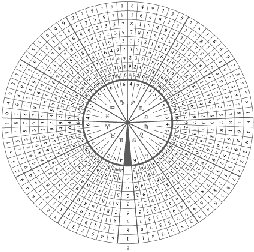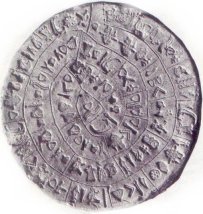Many European and Mediterranean-based peoples inherited the ancient
Sumerian-Babylonian sexagesimal system of time keeping, using 24 hours
in a day, with hours of 60-minutes each, and 60 seconds per minute.
There are still today 360 degrees in a circle due to the ancient Babylonian
year of 360 days. (That all changed after the catastrophe of 701
B.C.) Now our year is about 365 1/4 days long.
Many used the Moon's cycles, in 28-29 day Lunar calendars, trying to
reconcile this regular (monthly) movement with the annual Solar cycles.
Calendars of ancient peoples help to confirm the Biblical time frame.
They point to a 6,000 year span (or shorter), which is consistent with
a literal reading of the Bible.
|

Ancient Mayan Calendar |


